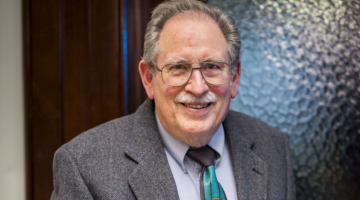
(Photo by Kevin Frayer/Getty Images)
It should be no surprise to regular readers of this column that I have long been fascinated by China’s IP superpower, Huawei. From my 2019 column where I asked whether the company would become known as an IP “power or pariah” to my 2021 column taking a look at Huawei’s action-packed patent litigation docket as both a plaintiff and defendant, my appreciation of the unique but challenging position the Huawei occupies in the global IP ecosystem has only grown over time. But I have also been thinking about the possibility of a Chinese IP superpower arising for some time, even going back to 2017, where I wrote about the opportunity for a major Chinese patent holder to exploit the weaknesses in foreign IP systems to its advantage. Now, I would submit that Huawei has provided the bellwether IP victory cementing its IP superpower status, having successfully driven Verizon to a midtrial settlement in the closely watched pair of high-value patent cases filed by Huawei against the U.S.-based telecommunications giant.
Getting to such a result was undoubtedly not an easy task, especially considering the continuing challenging climate for patent owners in the United States. But Huawei did it, executing on a sophisticated assertion strategy that saw it file lawsuits using both SEP and non-SEP assets in tandem, with each case spearheaded by a leading patent trial firm. Showing the wherewithal and willingness to take the cases to trial was also essential to driving settlement, as evidenced by the timing of the settlement announcement. As importantly, crafting a narrative that Huawei was simply looking for Verizon to acknowledge the investments that Huawei has made in its market-leading IP portfolio surely served Huawei well in its negotiations with Verizon — and will likely serve as a narrative that will continue to bear fruit with future licensing targets and the all-important court of American public opinion.

A Career In Legal Services: Practising Law Institute Honors Toby J. Rothschild
PLI honors Toby J. Rothschild with its inaugural Victor J. Rubino Award for Excellence in Pro Bono Training, recognizing his dedication and impact.
In light of the above, I am very pleased to share with this audience a written interview I did with one of the architects of Huawei’s winning IP enforcement approach, Steven Geiszler, Huawei’s U.S. chief IP counsel. (For a great profile of Steven’s approach in-house at Huawei, I commend this Modern Counsel piece.) Prior to joining Huawei, Steven was a heralded patent litigator as a partner in the Dallas offices of a number of international law firms. Since joining Huawei, he has managed Huawei’s heavy U.S. litigation docket, which has traditionally included a healthy mix of defense work in addition to Huawei’s well-publicized forays into patent enforcement. Despite his heavy workload — and in the immediate aftermath of the Verizon settlement, where no one would begrudge him a healthy dose of time to decompress — Steven was gracious enough to share his insights on the transition from a successful career as outside counsel to in-house counsel for one of the world’s leading IP holders.
Now to the interview. As usual, I have added some brief commentary to Steven’s answer below but have otherwise presented his answer to my question as he provided it.
Gaston Kroub: You had already been recognized as a leading patent litigator before taking the job at Huawei. How did your Biglaw experience help prepare you for your current role?
Steven Geiszler: I spent 15 years in law firms litigating cases of various size and complexity, in different venues, and as both plaintiff and defense counsel, and I draw from that experience to gauge risks, costs, and likely outcomes. There is almost always an element of reading tea leaves, but I must distinguish between, for example, a $500,000 case and a $10 million case because budgets, staffing, and counsel selection depend on that assessment. Another benefit of my background is that it allows me to have peer-to-peer conversations with my outside counsel, which gives me (and in turn, my internal clients) a deeper, more accurate understanding of case issues and developments. Finally, my 15 years in Biglaw give me credibility when advising many of my internal clients, many of whom have limited experience with legal issues or proceedings.

How You Can Take Control Of Your Firm’s Financial Future
Roadblocks to data-driven business management are falling, and a better bottom line awaits.
GK: A man after my own heart, Steven’s inherent understanding of the importance of accurately assessing the value of a case is surely of significant benefit to Huawei. Likewise, being able to talk to outside counsel as a peer helps foster the frank discussion necessary for achieving litigation success, particularly in the always-changing world of patent litigation. But perhaps the most interesting aspect of Steven’s answer is his recognition that being able to transmit litigation updates with confidence and competence to his internal clients is a key part of his job, especially considering the cultural divide between the U.S. and China. A divide that is narrowing day-by-day, but still exists, particularly when it comes to communicating the vagaries of U.S. patent litigation to a foreign audience.
Next week, we will hear from Steven about the considerations that aspiring in-house IP lawyers should be mindful of during their time as outside counsel, as well as the supreme importance of both Huawei and outside counsel being aligned in pursuit of Huawei’s IP objectives.
Please feel free to send comments or questions to me at [email protected] or via Twitter: @gkroub. Any topic suggestions or thoughts are most welcome.
Gaston Kroub lives in Brooklyn and is a founding partner of Kroub, Silbersher & Kolmykov PLLC, an intellectual property litigation boutique, and Markman Advisors LLC, a leading consultancy on patent issues for the investment community. Gaston’s practice focuses on intellectual property litigation and related counseling, with a strong focus on patent matters. You can reach him at [email protected] or follow him on Twitter: @gkroub.